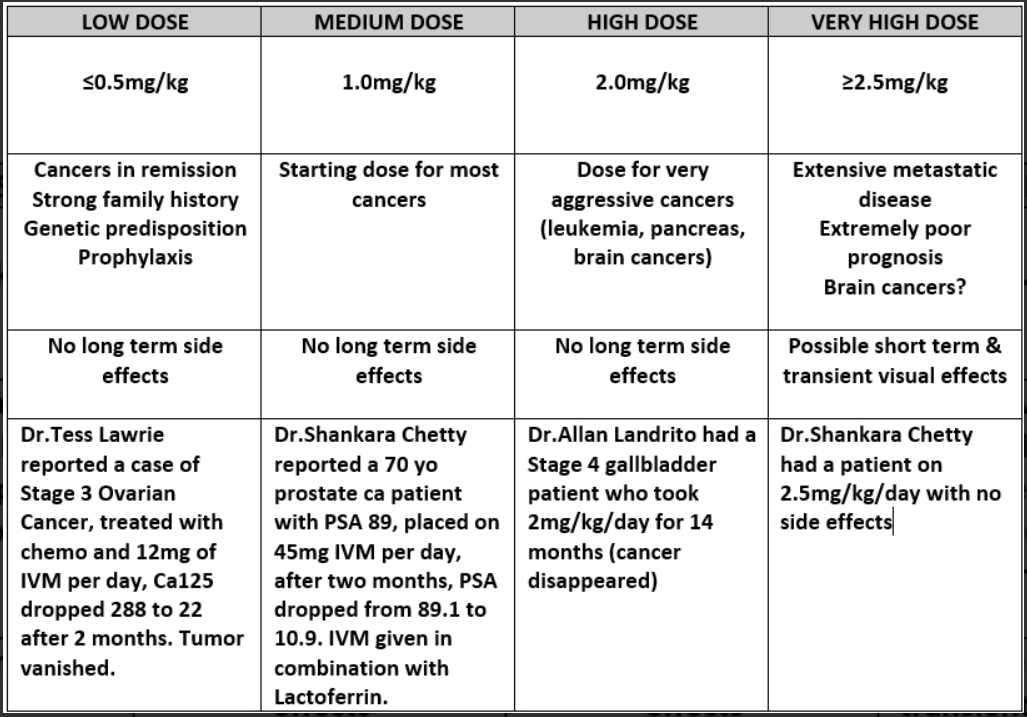Can Ivermectin Be Used in Cancer Therapy?
What is Ivermectin?
Ivermectin (IVM) is a widely used medication that shows promising anticancer activity in various cancer types. Although multiple signaling pathways modulated by ivermectin have been identified in tumor cells, there are few studies have focused on the exact target of ivermectin. Herein, we discuss the pharmacological effects and targets of ivermectin in different types of cancers.
Ivermectin was awarded the Nobel Prize in Physiology or Medicine in 2015, along with William C. Campbell and Satoshi Ōmura. They were recognized for their discoveries concerning a novel therapy against infections caused by roundworm parasites.
The Nobel Committee highlighted the significant impact of ivermectin in treating several neglected tropical diseases, particularly onchocerciasis (river blindness) and lymphatic filariasis. The development of ivermectin has contributed to improving the quality of life for millions of people and has been instrumental in global efforts to control and eliminate these diseases. Ivermectin is FDA-approved for the treatment of several parasitic infections in humans.
Which Cancers Could IVM Assist With?
Ivermectin has shown potential anti-cancer effects against several types of cancer cells. Some types of cancer where ivermectin has demonstrated efficacy include:
1. Breast Cancer: Breast cancer is a malignant tumor produced by gene mutation in breast epithelial cells. The incidence of breast cancer has increased each year, and today, a new case is diagnosed every 18 seconds worldwide. IVM could inhibit the proliferation of some breast tumor cell lines by blocking the cell cycle without increasing apoptosis. Other studies have also found that IVM could promote the death of tumor cells by regulating the tumor microenvironment in breast cancer.
2. Lung Cancer: Lung cancer has the highest morbidity and mortality among cancers. One study found that IVM could significantly inhibit the proliferation of some lung cancer cells by inhibiting YAP1 activity. In addition, IVM could reduce the metastasis of lung cancer cells by inhibiting EMT.
3. Gastrointestinal Cancer: Gastric cancer is one of the most common malignant tumors worldwide. More than one million patients with gastric cancer have been diagnosed worldwide, annually. One study showed that IVM could significantly inhibit the proliferation of gastric cancer cells in vivo and in vitro and that the inhibitory effect of IVM depended on the expression of Yes-associated protein 1(YAP1).
4. Prostate Cancer: Some laboratory studies have suggested that ivermectin may have anti-cancer properties that could be relevant to prostate cancer specifically with regards to cell growth inhibition. Some studies have shown that ivermectin can inhibit the growth of prostate cancer cells in vitro. It has been observed to induce apoptosis (programmed cell death) in these cells, which is a desirable effect in cancer treatment. The proposed mechanisms by which ivermectin may exert anti-cancer effects include the inhibition of certain signaling pathways involved in cell proliferation and survival, as well as effects on the tumor microenvironment.
5. Melanoma: Melanoma is the most common malignant skin tumor with a high mortality rate. One study found that IVM could effectively inhibit melanoma activity.
6. Brain Tumors/Glioma: Laboratory studies have indicated that ivermectin may inhibit the growth of glioma cells. Glioma is the most common cerebral tumor and approximately 100,000 people worldwide yearly being diagnosed with glioblastoma; the deadliest glioma. Studies often explore the drug's ability to induce apoptosis or inhibit cell proliferation. The proposed mechanisms through which ivermectin may exert anti-cancer effects include interference with specific cellular pathways and processes that are crucial for tumor growth and survival. For instance, ivermectin has been shown to affect the Wnt/β-catenin signaling pathway, which plays a role in various cancers, including gliomas.
Is Ivermectin Safe?
Ivermectin is a medication that has been used for decades to treat a variety of infections in humans. When used in appropriate dosages and for approved indications, ivermectin is generally considered safe for humans. Over the past 30 years, roughly 3·7 billion doses of ivermectin have been distributed in mass drug administration (MDA) campaigns globally.
What Is The Typical Dose?
It is difficult to overestimate the impact of ivermectin as a therapeutic agent to control various diseases. Usually, an adult dose of 0.2 mg/kg orally once could be taken, prophylactically, per FLCCC protocol for several infections. In one study, healthy volunteers, the dose was increased to 2 mg/Kg, and no serious adverse reactions were found. The median starting dose for most cancers is 1 mg/kg, per Dr. Williams Makis, without long term effects. In animals such as mice, rats, and rabbits found that the median lethal dose (LD50) of IVM was 10-50 mg/Kg. Based on this weight of evidence, ivermectin is unquestionably a safe, potent antiparasitic agent likely to be used as such long into the future. Although drug resistance can occur in animals, no resistance in humans has yet been confirmed in over 25 years.

Ref: William MakisMD/Substack
References:
Ivermectin, a potential anticancer drug derived from an antiparasitic drug - PMC (nih.gov)https://makismd.substack.com/p/ivermectin-articles-and-protocols Integrated analysis reveals FOXA1 and Ku70/Ku80 as targets of ivermectin in prostate cancer - PMC (nih.gov)
Safety of oral ivermectin during pregnancy: a systematic review and meta-analysis - The Lancet Global Health